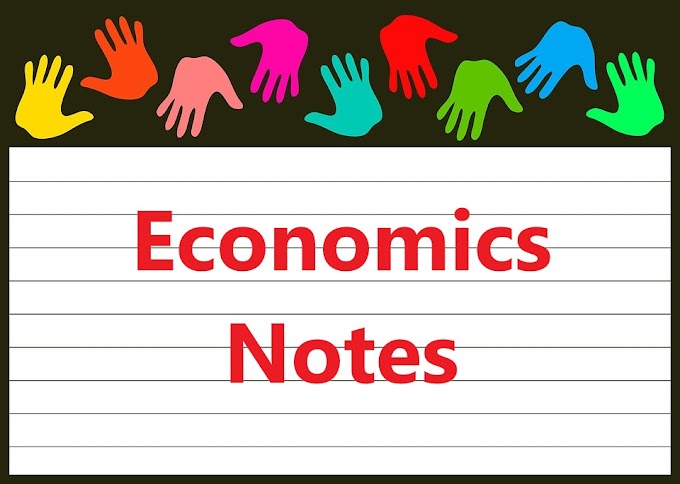TSC Secondary Level Economics Subject Second Paper Subjective Question Paper 2080
Ma Bi Economics Second paper Subjective Question of 2080 BS
नेपाल सरकार
शिक्षक सेवा आयोग
माध्यमिक तह, तृतीय श्रेणी, शिक्षक पदको खुला प्रतियोगितात्मक विषयगत परिक्षा - २०८०
समय: ३ घण्टा
विषय अर्थशास्त्र
पुर्नाङ्क: १००
उत्तिर्णाङ्क: ४०
सबै प्र्सह्नाहरु अनिवास्य छन्। प्रत्येक खण्डका लागि बेग्लाबेग्लै उत्तरपुस्तिका प्रयोग गर्नुपर्नेछ, अन्यथा उत्तरपुस्तिका रद्ध हुनेछ।
खण्ड क
१. सुक्ष्म अर्थशास्त्र र वृहत अर्थशास्त्र बिचमा रहेका समानता र भिन्नता देखाउनुहोस। उक्त विषयवस्तु शिक्षण गर्न प्रयोग गरिने २/२ वटा शिक्षण सिकाइ क्रियाकलाप उल्लेख गर्नुहोस। (४+६)
२. राष्ट्रिय आय (National Income) लाइ कसरि बुझिन्छ? खुला अर्थतन्त्रमा राष्ट्रिय आय गणनामा समावेश हुने तत्वहरुलाई चक्रिय प्रवाह नमुना (Circular flow model) को प्रयोग गरि कसरि शिक्षण गर्न सकिन्छ? प्रस्तुत गर्नुहोस (२+८)
३. बजेटका प्रकारबारे उल्लेख गर्नुहोस। नेपालमा बजेट निर्माण प्रक्रियाका बारेमा कक्षा कोठामा शिक्षण गर्दा प्रयोग हुने शैक्षिक सामाग्री र कुनै दुइवटा शिक्षण सिकाइ क्रियाकलाप उल्लेख गर्नुहोस। (३+१+६)
४. नेपालमा ग्रामिण अर्थतन्त्रका मुख्य पांच आर्थिक क्रियाकलापहरुको सुची तयार गर्नुहोस। कुनै एक क्रियाकलापका बारेमा कक्षमा कसरि शिक्षण गर्नुहुन्छ? शिक्षण सिकाइ क्रियाकलाप प्रस्तुत गर्नुहोस। (५+५)
५. कक्षा १० का अर्थशास्त्र विषयको कुनै एक विषयवस्तुमा आधारित भै दुइ/ दुइवटा बहुबैकल्पिक प्रश्न छोटो तथा लामो प्रश्न निर्माण गरि छोटो तथा लामो प्रश्नहरुको उत्तर परिक्षण गर्न उत्तरपुस्तिका समेत तयार गर्नुहोस। (२+१+१+६)
खण्ड ख
६. प्रभावकारी माग (Effective Demand) भनेको के हो? त्रि क्षेत्रीय अर्थव्यवस्थामा आय र उत्पादन कसरि निर्धारण हुन्छ ? चित्रात्मक रुपमा प्रस्तुत गर्नुहोस। (३+७)
७. नेपालको सन्दर्भमा प्रत्यक्ष वैदेशिक लगानी (Foreign Direct Investment) को महत्वमाथि प्रकाश पार्नुहोस। यस्तो लगानी आवस्यक देखिएको कुनै ३ क्षेत्रको चर्चा गर्नुहोस। (४+६)
८. कुल राष्ट्रिय खुशी (Gross National Happiness) र खुद खुशी (Net Happiness) को बिचमा भिन्नता देखाउनुहोस। कुल राष्ट्रिय खुशीका ४ वटा खम्बा (Pillar) उल्लेख गर्दै वार्तमान समयमा नेपालको कुल राष्ट्रिय खुशीको अवस्था पांच बुंदामा प्रस्तुत गर्नुहोस। (३+२+५)
९. मौद्रिक नीति भनेको के हो? मौद्रिक नीतिका उपकरणहरुको बारे उल्लेख गर्दै कुनै दुइ उपकरणहरुको प्रयोग गर्ने अवस्थाबारे चर्चा गर्नुहोस। (२+२+६)
१०. तल दिईएको समस्यालाई पद विचलन विधि (Step-Deviation Method) स्तरीय विचलन (Standard Deviation) पत्ता लागौनुहोस र उक्त नतिजाको व्याख्या गर्नुहोस। (८+२)
समाप्त
Unofficial Translation of the Questions by Hamrolibrary
Government of Nepal
Teachers Service Commission
Secondary Level, Class Third, Teacher Position Open Competitive Subject Examination - 2080
Time: 3 hours
Subject: Economics
Full Marks: 100
Pass Marks: 40
All questions are compulsory. Separate answer sheets must be used for each section, otherwise, the answer sheets will be canceled.
Section A
1. Show the similarities and differences between microeconomics and macroeconomics. Mention 2/2 teaching-learning activities used in teaching this subject. (4+6)
2. How is National Income understood? Using the circular flow model, explain the elements included in the calculation of national income in an open economy and present how it is taught. (2+8)
3. List the types of budgets. Mention the educational materials used in teaching the budget preparation process in Nepal and describe any two teaching-learning activities used in the classroom. (3+1+6)
4. Prepare a list of the main five economic activities in the rural economy of Nepal. Present the teaching-learning activities on how to teach one of these activities in the classroom. (5+5)
5. Based on any one topic of the Economics subject of Class 10, create two multiple-choice questions, two short questions, and two long questions. Also, prepare the answer sheet for assessing these short and long questions. (2+1+1+6)
Section B
6. What is effective demand? Explain the determination of income and production in a three-sector economy using a diagram. (3+7)
7. Highlight the importance of Foreign Direct Investment (FDI) in the context of Nepal. Discuss any three sectors where such investment is deemed necessary. (4+6)
8. Show the difference between Gross National Happiness (GNH) and Net Happiness. Mention the four pillars of GNH and present the current state of GNH in Nepal in five points. (3+2+5)
9. What is monetary policy? Mention the tools of monetary policy and discuss the use of any two tools in different situations. (2+2+6)
10. Using the Step-Deviation Method, find the standard deviation for the given problem and explain the result. (8+2) (Scroll right to view full part of the table →)
| Marks (Less than) |
10 |
20 |
30 |
40 |
50 |
60 |
70 |
| Number of students |
5 |
15 |
40 |
20 |
75 |
90 |
100 |
The End

.jpeg)



.jpeg)








If this article has helped you, please leave a comment.